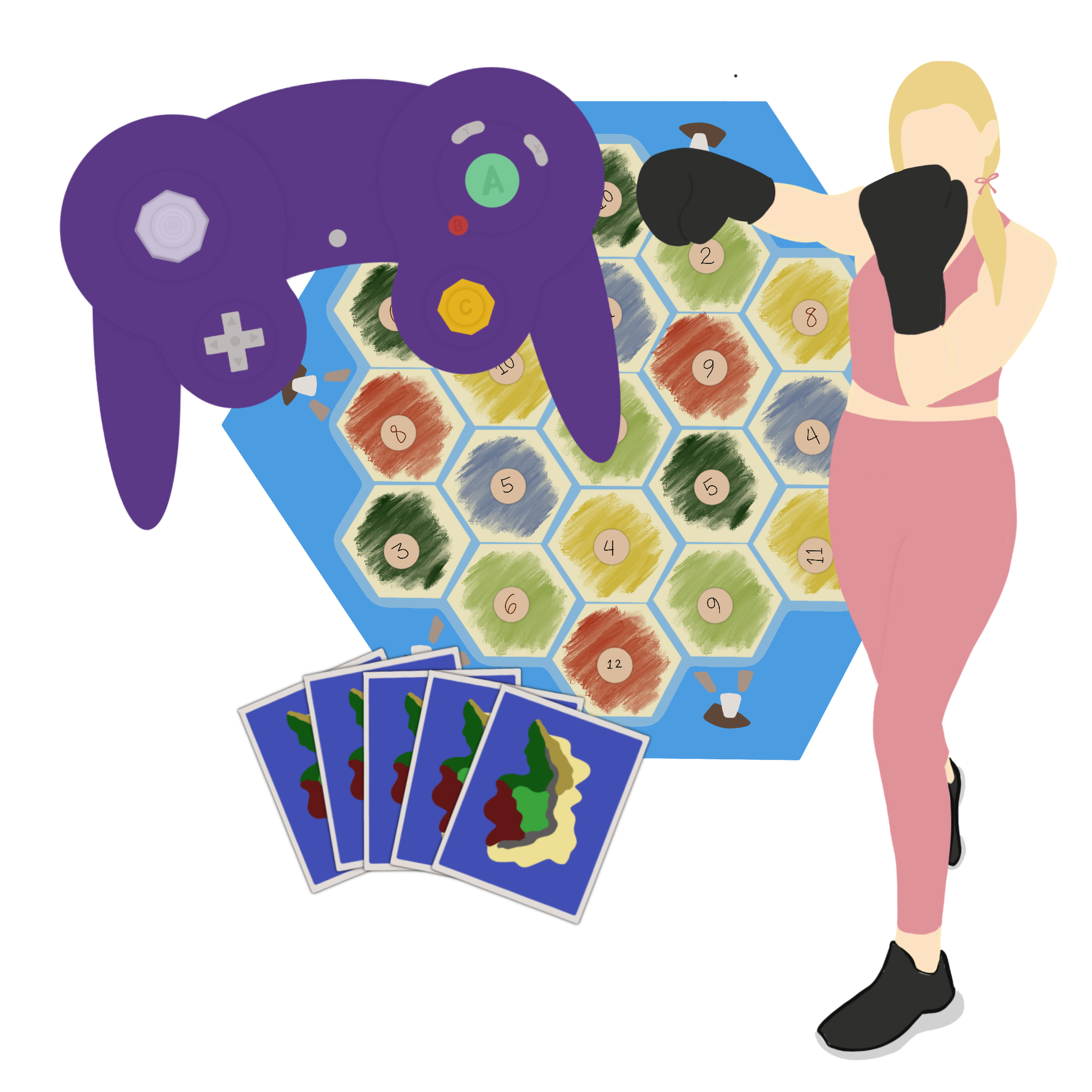Normalcy Within Reach
Illustration by Carolyn Burt | The Corsair
On April 19, all adults in the United States became eligible for the COVID-19 vaccine. This is a cause for celebration for many — myself included — after the difficult months the state faced over the winter season. In December, California received its first shipment of the Pfizer vaccine, and began vaccinating essential healthcare workers. At that same time, Los Angeles became the latest epicenter in the country, where it was averaging over 15,000 cases a day during the holidays.
As the vaccine rollout began to gain momentum, cases began to decline. California began to expand vaccine eligibility to government employees, those 65 and older, teachers and faculty, and those with underlying health conditions. I watched as more of my peers became eligible, waiting for my day to come.
Finally in April, I was able to schedule an appointment of my own. I was stoked, until I remembered I have a fear of needles and that excitement morphed into a pit in my stomach.
For my first shot of the Pfizer vaccine, I was accompanied to my appointment by my mom. Before taking a seat, I let my pharmacist know of my fear of needles and he offered to sing a song to distract me. As he sang “Old McDonald” I let out a deep breath, and by the time he got to “Ee i ee i o,” the shot was done.
Despite knowing how quick of a process and minimal pain getting the first dose was, that didn’t stop me from feeling just as anxious for the second dose. This time around my mom was unable to take me — the first time in my life I’ve gotten a shot without her by my side. Instead, one of my friends stepped in to accompany me for moral support. To help ease my mind, he had me focus on what life would look like once I was fully vaccinated.
For the past year, my time spent with friends has been either virtual or outdoors with social distancing in place. Birthdays and other milestones celebrated via car parades, meeting up at a park, or over video chat. As the year progressed, Zoom calls became draining, and as the weather became gloomy, there was less enthusiasm to meet up outdoors. There was a lack of motivation and with it a lack of social interaction.
Illustration by Carolyn Burt | The Corsair
Soon my friend group will be fully vaccinated, and with it we’ll be able to meet up at each other's apartments to play our favorite games like Settlers of Catan and Super Smash Bros. We can watch a movie together on the couch, without having to research the best video conference software to “share a screen” with. Simply just being able to be in one another's company, face to face, without worrying if we’re putting one another at risk for coronavirus.
Being fully vaccinated also allows me to feel safe about the reduced risk of COVID-19 exposure in my day to day life. As I return to indoor activities where masks are still required, I now feel much more at ease partaking in things like boxing classes or courses on-ground. There are still things I’m holding off on, such as going to the movie theater or traveling by airplane, as there is a mental adjustment I need to make as well.
While things are looking brighter for the Golden State, that is not the case for the remainder of the country or continent for that matter. Just north of the U.S. — Ontario, Canada has entered another lockdown. A provincewide stay at home order, originally set to end May 6, has been extended by two weeks, and non-essential businesses remain closed.
In India things are even more heartbreaking, with COVID-19 taking the lives of 120 people each hour over the past two weeks. It’s easy to think out of site, out of mind — a mentality many had when news of the coronavirus outbreak in Wuhan, China first began to spread in December 2019. This is a global pandemic, and what happens in another county, state, country, or continent, affects us all.
Normalcy finally feels within reach, but we can only get there if we each do our part. Our mantra has grown this past year; wash your hands, keep a social distance, wear a mask, and now — if you’re eligible — get the vaccine. By taking these steps to reduce the spread of COVID-19, less people will be exposed and lives will be saved.












